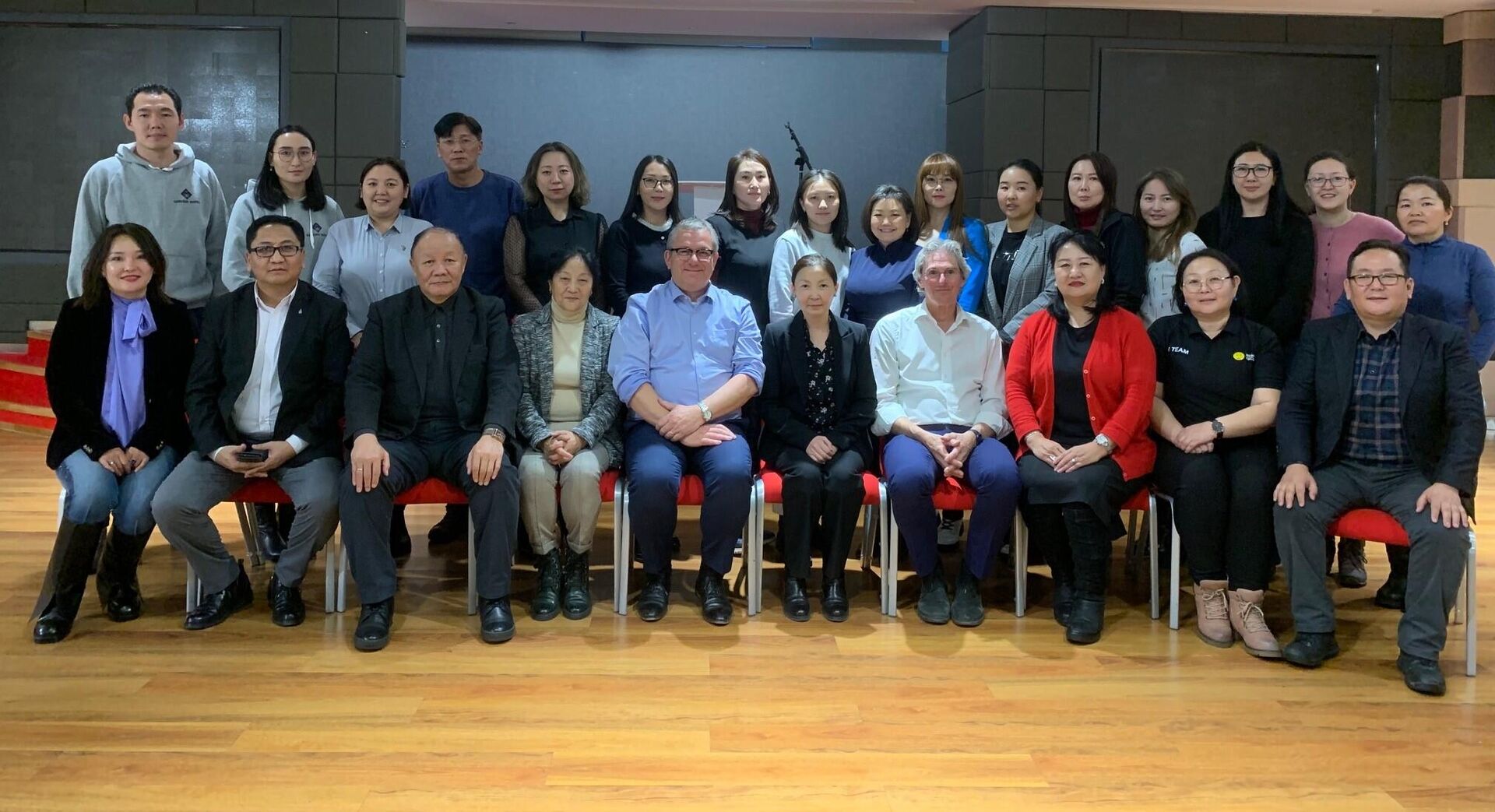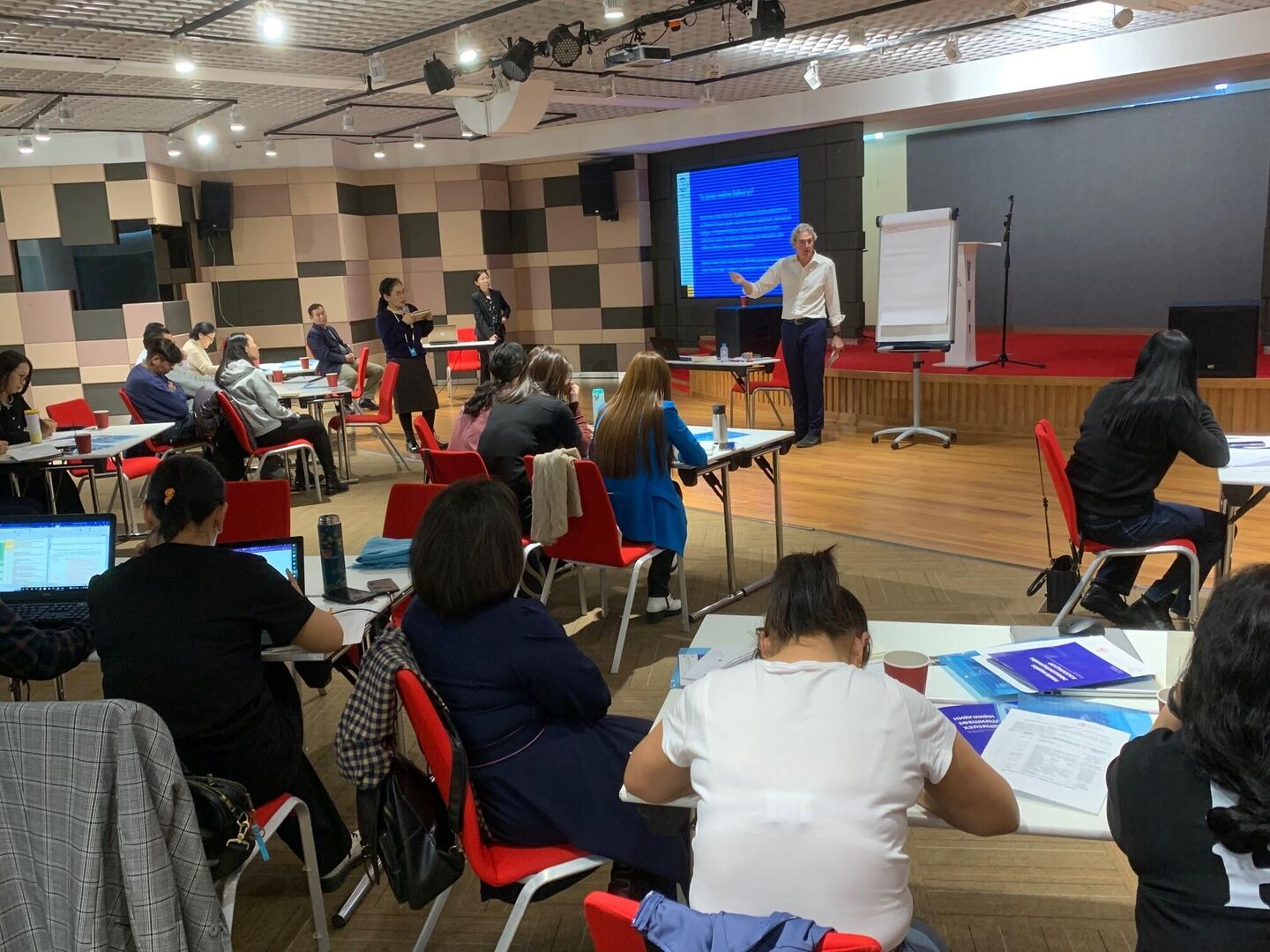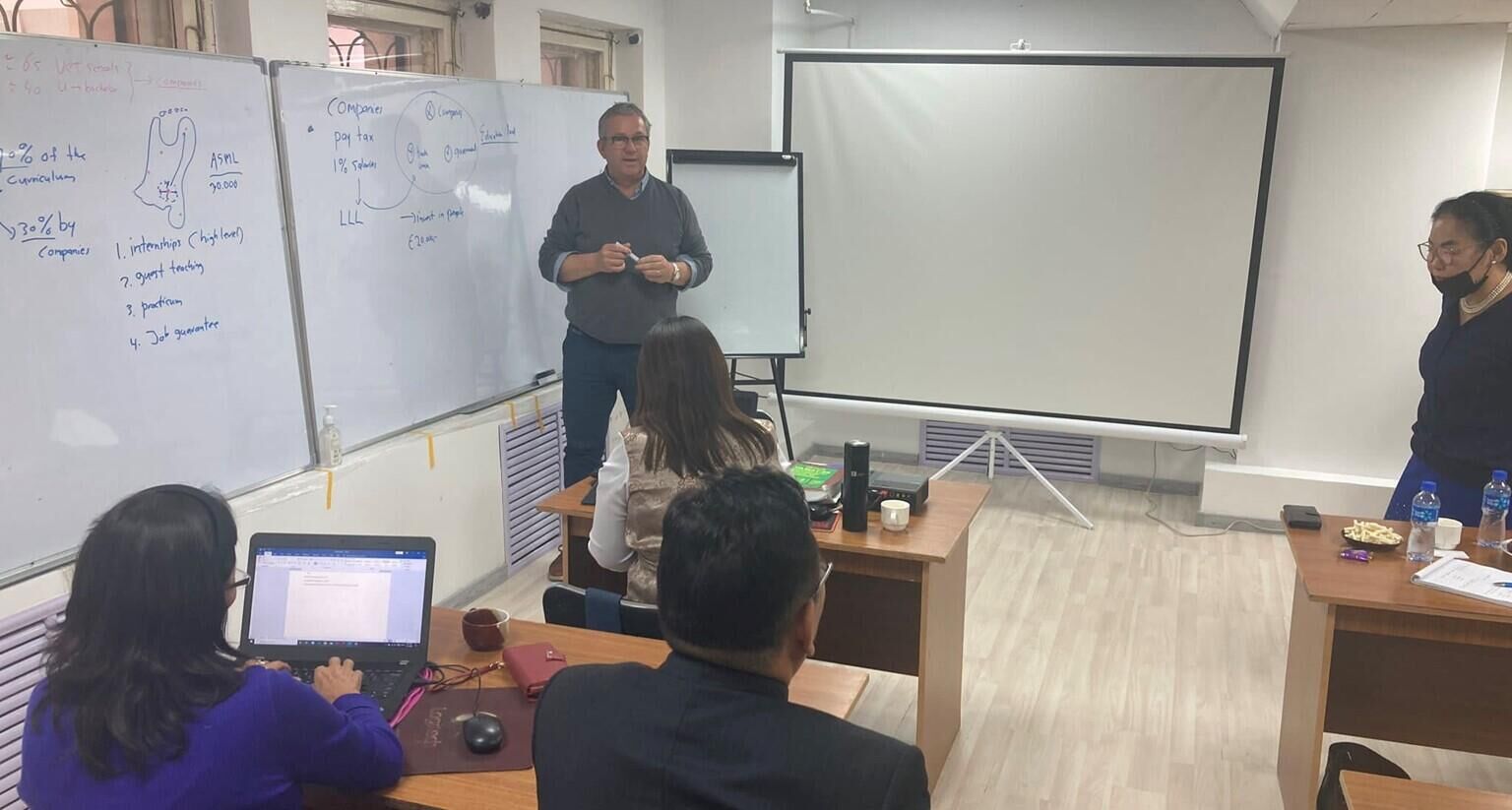

Mongolia makes leaps forward
Mongolia is a very large country in terms of surface. However, only 3.4 million people live there, 1.4 million of whom live in the capital Ulaanbaatar. The country has been isolated for a long time and only had intensive contacts with neighbouring countries Russia and China. But the world is getting smaller due to technological developments. Mongolia is in line with the opportunities this offers. Among other things, by developing social dialogue and strengthening vocational education and the lifelong learning agenda according to international standards. DECP has a longstanding relationship with the employers' organisation MONEF. In November, two DECP experts (Martien Robertz, country manager, and Jos van Erp, advisor skills development) visited Mongolia at the request of MONEF with the aim of assessing the current state of affairs and initiating next steps.
The programme was prepared by MONEF in such a way that maximum results could be achieved. The first day, a visit was made to the largest copper mine in the country -Erdenet- in the city of the same name. Erdenet has been wholly owned by the Mongolian government since 2016 and employs 10,000 people. This makes Erdenet the largest member of MONEF and makes a significant contribution to the economy by exporting its products. The purpose of this visit was to meet the new General Manager, the former Mining Minister. MONEF aims to set up a competence centre together with Erdenet in which other companies, including SMEs, can participate. Both new employees and existing employees can develop their profession here and keep up with the changing competency needs of companies. In June, two Erdenet delegations visited the Netherlands for a study trip with the main topic of skills development and the organisation of public education. (see https://www.decp.nl/stories/decp-organizes-study-trip-for-mongolian-company-43532) The reunion with the visitors was therefore most cordial.
The next day, a group of about 20 employers and trade union officials were received in Ulaanbaatar. The aim was to present a recent study conducted by MONEF. This research focuses on the questions of what SMEs find important about membership of MONEF. In other words; when do they experience concrete added value and how can they optimally benefit from this? The survey was conducted among existing members and potential members. More than 65% of the potential members indicated that they expect added value in various areas and are therefore considering joining MONEF. The research was technically and financially supported by DECP. Martien Robertz then presented the principles of social dialogue as is customary in the Netherlands. The many reactions showed that the attendees recognize the importance of bipartite social dialogue in order to jointly influence the national government to take decisions that strengthen the business climate and contribute to employment growth.
Skills development is an important condition for economic growth and sustainable employment. The fact that MONEF has made great strides in this area is evidenced by the fact that since the last visit of DECP experts to MONEF and with technical support through various online training courses, a completely new competence centre has been set up. This centre develops standards for hundreds of training programs that are recognized by industry associations and training institutes. The emphasis here is on determining the starting level of students and measuring the results of training efforts in terms of knowledge, skills and professional attitude. Jos van Erp has included the staff of this centre in the way in which companies in the Netherlands influence curricula drawn up by TVET schools and universities of applied sciences. Among other things, through professional field committees and guaranteed high-quality internships. The fact that curricula - also in regular daytime education - can thus move with the rapid changes in companies was an eye opener for those present.

Martien Robertz explains the importance of leadership in relation to change and development
At a separate location outside the capital, 25 professionals were invited to attend a workshop on social dialogue and basic principles of negotiation. The emphasis was on leadership as an essential condition for managing change and development. To this end, Martien Robertz had clearly structured the insights and tools developed by DECP over the years. This allowed him to take his attentive audience step by step into the logic of seeking solutions to challenges where different relevant parties may have different interests. Naturally, this workshop was aimed at employers and employees, who were therefore well represented.
During the debriefing and evaluation of the rich program, the hosts of MONEF and the experts of DECP concluded that Mongolia has promising economic perspectives. Various sectors such as mining, cashmere and tourism can be seen as drivers of growth. Opportunities to which successful social dialogue further opens the doors.

Jos van Erp presents skills development structures in the Netherlands